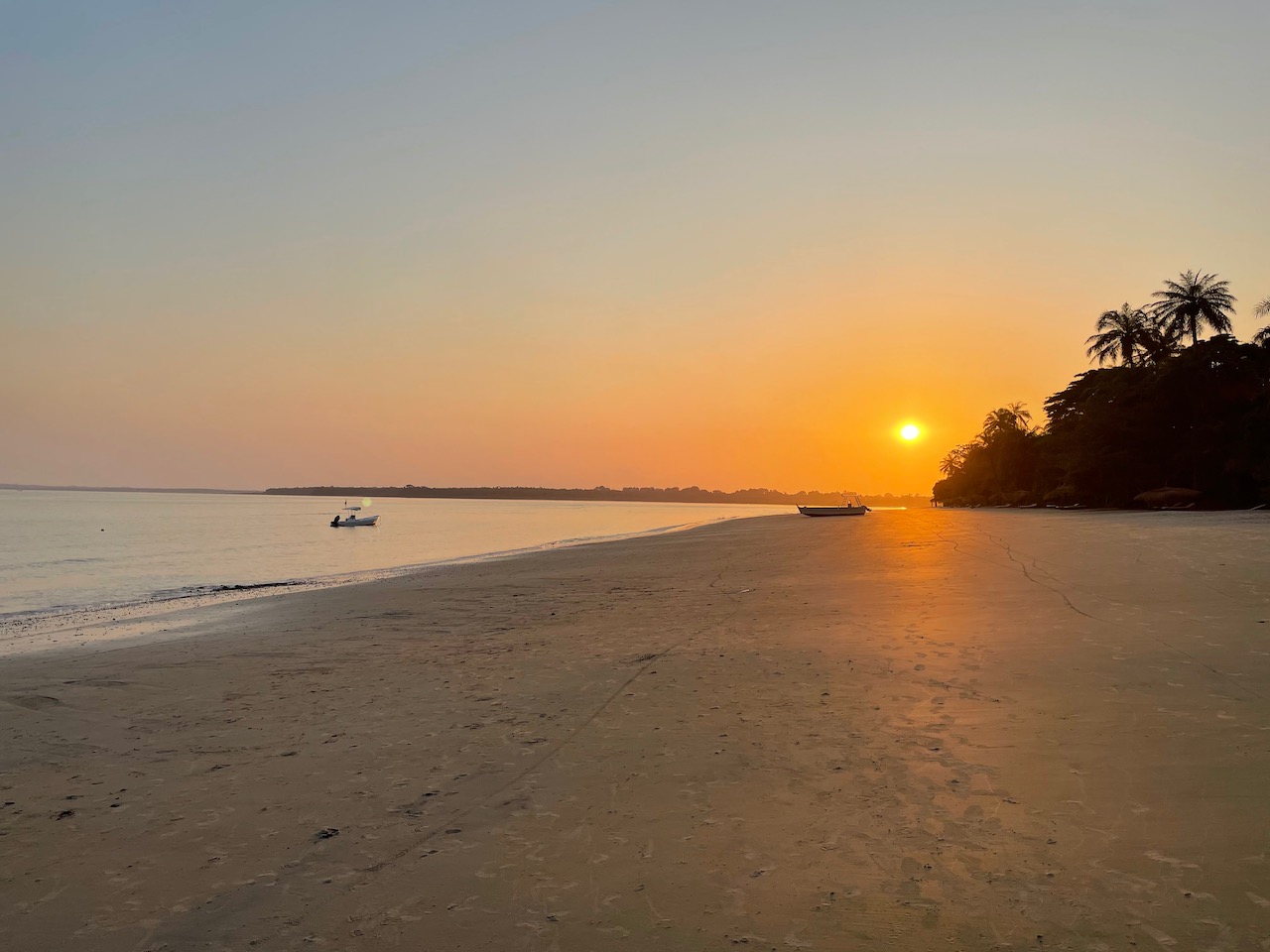Perguntas Frequentes
1. How to get to Guinea-Bissau?
There are direct and regular flights operated by airlines such as:
- TAP Air Portugal
- Royal Air Maroc (with a stopover in Casablanca)
- TACV / Cabo Verde Airlines (with a stopover in Sal ou Praia)
- Transportes Aéreos da Guiné-Bissau (on scheduled or charter flights)
2. When is the best time to visit Guinea-Bissau?
Dry season (November to April) – Best time to visit
Climate: Clear skies, little rain, more pleasant temperatures.
Rainy season (May to October) – Less recommended
Climate: Heavy rains, high humidity, roads may become impassable.
Extra tip:
December and January are especially good, as the weather is dry and less muggy, and it is not yet as hot as in March and April.
3. Do I need a visa to enter Guinea-Bissau?
Yes, most foreign nationals require an entry visa, which can be obtained:
- From Guinea-Bissau embassies or consulates
- Online, via e-visa platforms (where available)
- On arrival at the airport (in some cases, upon payment)
It is advisable to check with your nearest Guinea-Bissau embassy before travelling.
4. A Guiné-Bissau é um País seguro?
A Guiné-Bissau é, em geral, um país pacífico e acolhedor, mas com infraestruturas limitadas e instabilidade política ocasional. É recomendável:
-
Informar-se antes da viagem sobre a situação atual
-
Evitar deslocações noturnas em zonas remotas
-
Viajar com operadores ou guias locais de confiança
5. Quais são as vacinas obrigatórias?
A vacina contra a febre-amarela é obrigatória para entrar no país (com certificado internacional).
Também são recomendadas:
-
Hepatite A e B
-
Tifoide
-
Profilaxia contra a malária (aconselhada, especialmente em viagens fora das zonas urbanas)
Consulte a Consulta do Viajante e marque a sua consulta com antecedência.
6. Qual é a moeda usada na Guiné-Bissau?
A moeda oficial é o Franco CFA da África Ocidental (XOF).
Cartões de crédito são pouco aceites fora da capital. É recomendado levar dinheiro em numerário (euros podem ser trocados localmente).
7. Que línguas se falam na Guiné-Bissau?
A língua oficial é oportuguês.
A língua mais falada no dia-a-dia é o crioulo guineense
Existem várias línguas locais (balanta, fula, mandinga, papel, entre outras)
8. Como é o acesso à internet e comunicações?
O acesso à internet é limitado e instável fora das grandes cidades.
É recomendável adquirir um cartão SIM local para chamadas e dados móveis. Não espere Wi-Fi em zonas remotas como os Bijagós.
9. Como é a comida típica guineense?
A gastronomia da Guiné-Bissau é rica em sabores africanos e influência portuguesa. Pratos comuns:
-
Arroz com peixe ou marisco
-
Caldo de mancarra (amendoim)
-
Chabéu (refogado de peixe ou carne)
-
Frutas tropicais (papaias, mangas, cajus)
10. O que levar na mala?
- Roupa leve e confortável (clima quente e húmido)
- Repelente de insectos e protector solar
- Calçado prático para trilhos
- Chapéu ou lenço para o sol
- Medicamentos básicos e produtos de higiene pessoal
